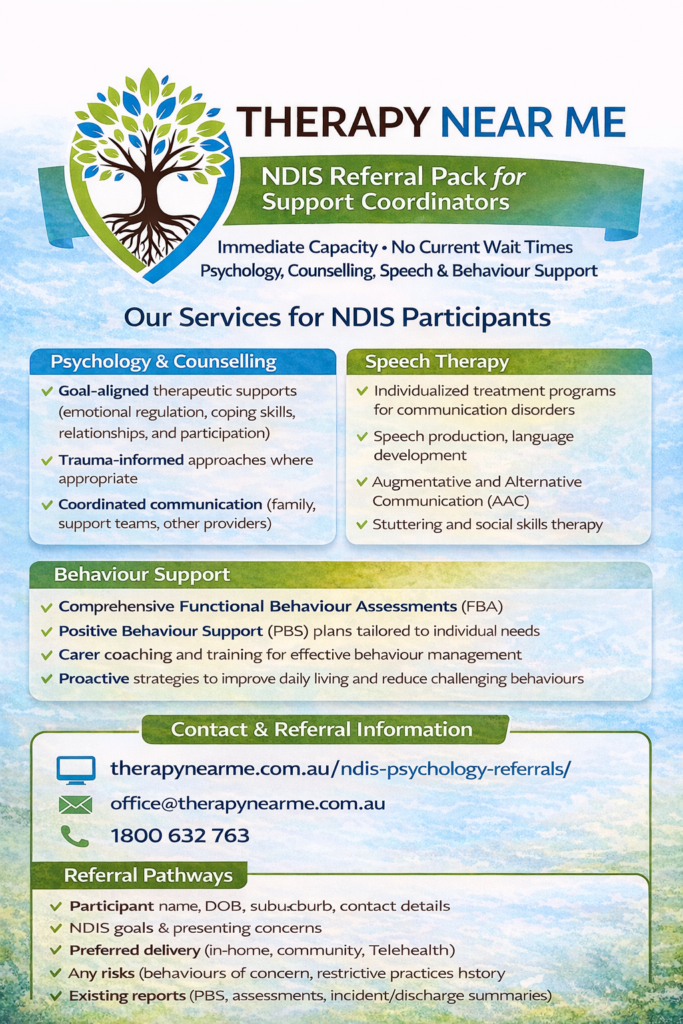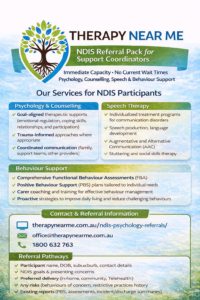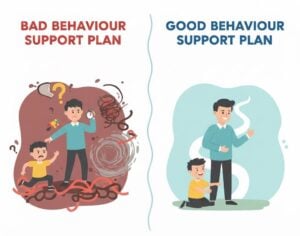Emotional regulation is the ability to manage and respond to emotional experiences in a healthy and adaptive way. It is crucial for mental wellbeing, effective social interactions, and overall life satisfaction. Developing emotional regulation skills can help individuals cope with stress, maintain better relationships, and improve their mental health. This article explores the importance of emotional regulation, key strategies for developing these skills, and their benefits, supported by scientific research.
Keywords: emotional regulation skills, emotional control, mental wellbeing, stress management, healthy relationships, Australian mental health
Understanding Emotional Regulation
Emotional regulation involves recognising, understanding, and managing emotions in a way that promotes psychological health. It encompasses a range of processes that help individuals influence their emotions, how they experience them, and how they express them (Gross, 1998).
The Importance of Emotional Regulation
1. Mental Health
Effective emotional regulation is closely linked to mental health. It helps in reducing symptoms of anxiety, depression, and other mental health disorders.
- Anxiety and Depression: Poor emotional regulation can contribute to the development and maintenance of anxiety and depression (Aldao, Nolen-Hoeksema, & Schweizer, 2010).
- Stress Reduction: Managing emotions effectively can reduce the physiological and psychological impact of stress (Gross & John, 2003).
2. Social Relationships
Emotional regulation is essential for healthy social interactions. It helps individuals communicate more effectively, resolve conflicts, and build stronger relationships.
- Conflict Resolution: Better emotional control leads to more constructive responses during conflicts (Eisenberg, Fabes, & Guthrie, 1997).
- Empathy and Understanding: Understanding and managing one’s emotions can enhance empathy and improve interpersonal relationships (Lopes et al., 2004).
3. Physical Health
Emotional regulation also impacts physical health. Chronic stress and negative emotions can lead to various health issues, including cardiovascular problems and weakened immune function.
- Cardiovascular Health: Effective emotional regulation can reduce the risk of hypertension and heart disease (Chida & Steptoe, 2010).
- Immune Function: Positive emotional management is linked to better immune system functioning (Segerstrom & Miller, 2004).
Strategies for Developing Emotional Regulation Skills
1. Mindfulness and Meditation
Mindfulness and meditation practices help individuals become more aware of their emotions and develop better control over their reactions.
- Mindfulness-Based Stress Reduction (MBSR): This program teaches mindfulness techniques to reduce stress and improve emotional regulation (Kabat-Zinn, 1990).
- Meditation: Regular meditation can enhance emotional awareness and reduce reactivity (Goyal et al., 2014).
2. Cognitive Reappraisal
Cognitive reappraisal involves changing the way one thinks about a situation to alter its emotional impact.
- Reframing Thoughts: By reinterpreting a negative event in a more positive light, individuals can reduce negative emotions (Gross, 2002).
- Positive Thinking: Focusing on positive aspects of a situation can improve emotional responses and overall wellbeing (Garland et al., 2011).
3. Emotion Regulation Therapy
Therapy can help individuals develop emotional regulation skills through guided practice and support.
- Cognitive-Behavioural Therapy (CBT): CBT helps individuals identify and change negative thought patterns and develop healthier emotional responses (Hofmann et al., 2012).
- Dialectical Behaviour Therapy (DBT): DBT is particularly effective for individuals with borderline personality disorder and focuses on balancing acceptance and change in emotional regulation (Linehan, 1993).
4. Physical Activity
Regular physical activity can improve mood and emotional regulation by releasing endorphins and reducing stress.
- Exercise: Activities like jogging, yoga, or team sports can help manage emotions and reduce anxiety and depression (Salmon, 2001).
- Mind-Body Exercises: Practices such as yoga and tai chi combine physical movement with mindfulness, enhancing emotional regulation (Wang et al., 2010).
5. Social Support
Building and maintaining strong social connections provides emotional support and helps in regulating emotions.
- Support Networks: Having friends and family to talk to can provide perspective and reduce emotional burden (Cohen, 2004).
- Group Activities: Participating in group activities can enhance social bonds and provide emotional relief (Helliwell & Putnam, 2004).
Benefits of Emotional Regulation
1. Improved Mental Wellbeing
Effective emotional regulation leads to better mental health, reducing the risk of mental health disorders and improving overall life satisfaction.
- Resilience: Individuals with strong emotional regulation skills are more resilient to stress and adversity (Tugade & Fredrickson, 2004).
- Positive Outlook: Better management of emotions contributes to a more positive and optimistic outlook on life (Larsen & Prizmic, 2004).
2. Enhanced Relationships
Emotional regulation fosters healthier and more fulfilling relationships by improving communication and reducing conflict.
- Trust and Intimacy: Managing emotions effectively helps build trust and intimacy in relationships (Reis & Shaver, 1988).
- Social Harmony: Better emotional control leads to more harmonious interactions and stronger social connections (Lopes et al., 2004).
3. Physical Health Benefits
Effective emotional regulation promotes better physical health by reducing the impact of stress and negative emotions on the body.
- Longevity: Positive emotional management is associated with longer life expectancy and better overall health (Danner, Snowdon, & Friesen, 2001).
- Disease Prevention: Reducing stress and negative emotions lowers the risk of chronic diseases (Segerstrom & Miller, 2004).
Conclusion
Developing emotional regulation skills is essential for enhancing mental wellbeing, improving relationships, and promoting physical health. By practising mindfulness, cognitive reappraisal, engaging in therapy, maintaining physical activity, and building social support, individuals can effectively manage their emotions and improve their overall quality of life. Prioritising emotional regulation can lead to lasting benefits and a more fulfilling, balanced life.
References
- Aldao, A., Nolen-Hoeksema, S., & Schweizer, S. (2010). Emotion-regulation strategies across psychopathology: A meta-analytic review. Clinical Psychology Review, 30(2), 217-237.
- Chida, Y., & Steptoe, A. (2010). The association of anger and hostility with future coronary heart disease: A meta-analytic review of prospective evidence. Journal of the American College of Cardiology, 53(11), 936-946.
- Cohen, S. (2004). Social relationships and health. American Psychologist, 59(8), 676-684.
- Danner, D. D., Snowdon, D. A., & Friesen, W. V. (2001). Positive emotions in early life and longevity: Findings from the nun study. Journal of Personality and Social Psychology, 80(5), 804-813.
- Eisenberg, N., Fabes, R. A., & Guthrie, I. K. (1997). Coping with stress: The roles of regulation and development. In S. Wolchik & I. Sandler (Eds.), Handbook of children’s coping: Linking theory and intervention (pp. 41-70). Springer US.
- Garland, E. L., Gaylord, S. A., & Park, J. (2011). The role of mindfulness in positive reappraisal. Explore: The Journal of Science and Healing, 7(1), 37-44.
- Gross, J. J. (1998). The emerging field of emotion regulation: An integrative review. Review of General Psychology, 2(3), 271-299.
- Gross, J. J. (2002). Emotion regulation: Affective, cognitive, and social consequences. Psychophysiology, 39(3), 281-291.
- Gross, J. J., & John, O. P. (2003). Individual differences in two emotion regulation processes: Implications for affect, relationships, and wellbeing. Journal of Personality and Social Psychology, 85(2), 348-362.
- Goyal, M., Singh, S., Sibinga, E. M., Gould, N. F., Rowland-Seymour, A., Sharma, R., … & Haythornthwaite, J. A. (2014). Meditation programs for psychological stress and wellbeing: A systematic review and meta-analysis. JAMA Internal Medicine, 174(3), 357-368.
- Helliwell, J. F., & Putnam, R. D. (2004). The social context of wellbeing. Philosophical Transactions of the Royal Society of London. Series B: Biological Sciences, 359(1449), 1435-1446.
- Hofmann, S. G., Asnaani, A., Vonk, I. J., Sawyer, A. T., & Fang, A. (2012). The efficacy of cognitive behavioural therapy: A review of meta-analyses. Cognitive Therapy and Research, 36(5), 427-440.
- Kabat-Zinn, J. (1990). Full Catastrophe Living: Using the Wisdom of Your Body and Mind to Face Stress, Pain, and Illness. Delacorte Press.
- Larsen, R. J., & Prizmic, Z. (2004). Affect regulation. In R. F. Baumeister & K. D. Vohs (Eds.), Handbook of self-regulation: Research, theory, and applications (pp. 40-61). Guilford Press.
- Linehan, M. M. (1993). Cognitive-Behavioral Treatment of Borderline Personality Disorder. Guilford Press.
- Lopes, P. N., Salovey, P., Côté, S., Beers, M., & Petty, R. E. (2004). Emotion regulation abilities and the quality of social interaction. Emotion, 5(1), 113-118.
- Salmon, P. (2001). Effects of physical exercise on anxiety, depression, and sensitivity to stress: A unifying theory. Clinical Psychology Review, 21(1), 33-61.
- Segerstrom, S. C., & Miller, G. E. (2004). Psychological stress and the human immune system: A meta-analytic study of 30 years of inquiry. Psychological Bulletin, 130(4), 601-630.
- Tugade, M. M., & Fredrickson, B. L. (2004). Resilient individuals use positive emotions to bounce back from negative emotional experiences. Journal of Personality and Social Psychology, 86(2), 320-333.
- Wang, C., Collet, J. P., & Lau, J. (2010). The effect of tai chi on health outcomes in patients with chronic conditions: A systematic review. Archives of Internal Medicine, 170(9), 831-839.
How to get in touch
If you or your NDIS participant need immediate mental healthcare assistance, feel free to get in contact with us on 1800 NEAR ME – admin@therapynearme.com.au.







